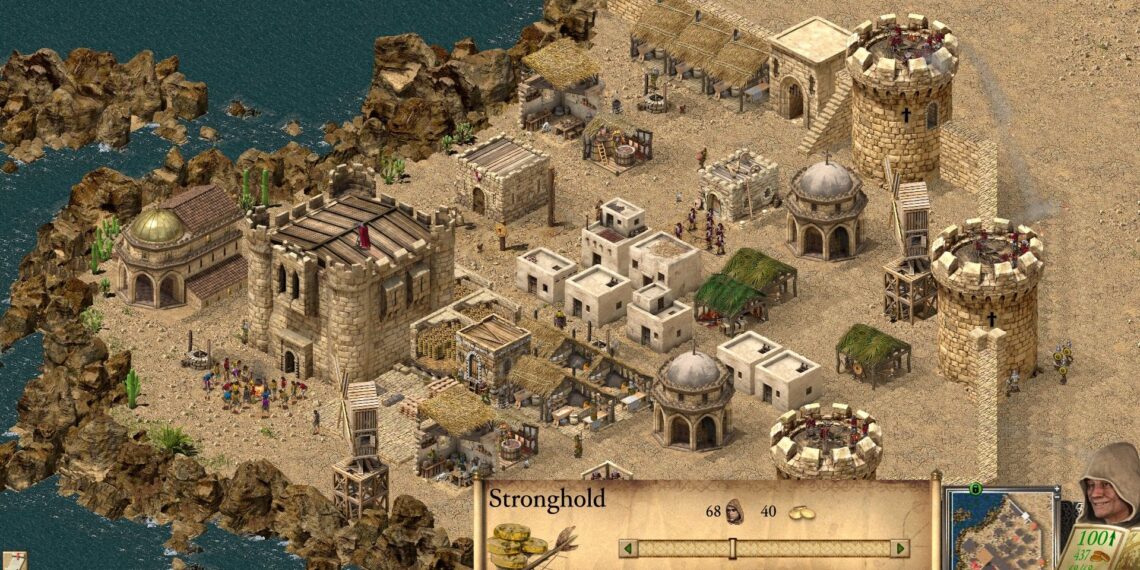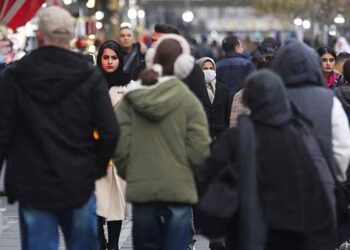Select Language:
Managing resources is crucial in the classic strategy game Stronghold Crusader, and gold often determines victory in battles. Key buildings and military units require a significant amount of gold, so if your treasury runs low, you’ll need to find a solution quickly.
This guide is designed for both newcomers and those returning with the Definitive Edition. It covers everything you need to know about maintaining a steady income, including how to manage workers and production effectively.
Taxes and Peasants
Your primary source of gold comes from taxation. You can adjust your tax rate using the slider on your Keep. Every peasant living in your fortress pays taxes each month, regardless of their job status. Thus, the bigger your population, the more gold you collect over time.
At the start of a new game, your tax rate is set to zero. You won’t earn any income until you change it, but raising taxes can hurt your Popularity. It’s generally best to use your initial funds to build a basic resource economy first.
Even a small increase in taxes can lower your overall Popularity. If you don’t have other ways to keep your Popularity up, it will gradually decrease each month. This isn’t a concern until it falls below 50, after which recovery becomes challenging. If you raise taxes, make sure you have strategies to keep your citizens satisfied.
Alms for the Poor
You can also set your tax rate to negative, which means you’ll distribute gold to the populace rather than collect it. While this approach raises your Popularity, it can also be costly, as the expense scales with your total peasant population.
Whether you’re taxing or distributing, the effects on Popularity increase with the amounts involved. Higher taxes correspond to lower Popularity, while larger charity payments boost Popularity.
Popularity and Population
Your Popularity directly impacts your stronghold’s population. If your Popularity remains above 50, your population will grow steadily until it reaches the maximum housing capacity. Conversely, if it falls to 50 or below, peasants will begin to leave your settlement.
The extent of your Popularity above or below 50 doesn’t affect the rate of population growth or decline. However, being near 100 gives you more leeway for emergency measures like reducing food rations or raising taxes. Recovering from a Popularity of 10 will take much longer than from 45.
You can hover over the campfire by the Keep to check population trends. A ring will indicate growth (green) or decline (red). If it’s fully green, new peasants will appear if there is housing available. You can build more Hovels to accommodate them, but be aware this will increase your needs for food, religion, and ale. A fully red ring signifies that a peasant will depart.
If there are no available workplaces, new peasants will wait at the campfire until one opens up. They will consume food, drink ale, and pay taxes while they wait. You can also recruit peasants at the Barracks, Mercenary Post, or other military buildings. Soldiers do not count toward your population and stop consuming goods once they join the army, making room for new peasants.
Always keep some idle peasants ready for conscription.
Popularity Factors
|
Popularity Source |
How It Works |
Tip(s) |
|---|---|---|
|
Food |
Providing food will keep your people happy. Adjust the ration level at the Granary, but be cautious about running out. |
A Popularity bonus applies if you have multiple types of food stored. |
|
Fear Factor (Entertainment) |
Keep entertainment structures active to slow down peasants’ work while boosting soldiers’ attack bonuses. |
|
|
Religion |
Clerics from religious structures spread blessings. More clerics mean better coverage, while larger churches offer flat Popularity bonuses. |
Place smaller religious buildings strategically so clerics can cover more ground efficiently. |
|
Ale |
Brew ale from hops and distribute it through Inns. Each Inn serves up to 30 peasants, so expanding access increases your Popularity. |
Each barrel of ale lasts about two-and-a-half minutes once delivered to an Inn. |
Resources and Storage

A satisfied workforce is essential, but it’s equally important that they can perform their tasks efficiently. This is where resource layout and storage management play a significant role in Stronghold Crusader.
Workers need to travel to their jobs and deliver goods. The less they have to move around, the more productive your stronghold will be.
The requirements depend on the specific map; if the closest sources of stone and iron are far from your Keep, adapt accordingly.
There are three key storage buildings: the granary, stockyard, and armory. Each can be expanded, but only next to the existing structure; these will become central hubs for managing resources during the game.
- The granary stores finished food items—anything edible goes here.
- The armory stores weapons, armor, and shields.
- The stockyard stores everything else, making it the one most likely to fill up and require expansion.
If possible, spread these three buildings out to create districts within your settlement. This way, industries can grow without congestion. For example, position bowyers, tanners, and blacksmiths near the stockyard and armory to streamline material pick-up and delivery.
Notable Resources and Buildings

Most buildings need just one or more workers to produce resources, but some have specific rules. For example:
- Stone quarries require a nearby ox tether to transport stone to the stockyard. Workers bring the stone to the tether, after which the ox carries it to storage.
- Hop fields must be harvested quickly; otherwise, they become infested with weevils, necessitating their deletion and rebuilding.
- Dairy farms generate cows until reaching three, then they produce cheese. If tanners are in operation, they may occasionally take cows for hides, affecting cheese production.
- A single wheat field can supply a flour mill and two or three bakeries. Although this demands more workers and time, it yields more food overall than other production chains.
Trading resources at the Market can be a lifesaver, but availability varies by map. It can be a good strategy to produce surplus goods for sale to maintain a steady flow of gold.







